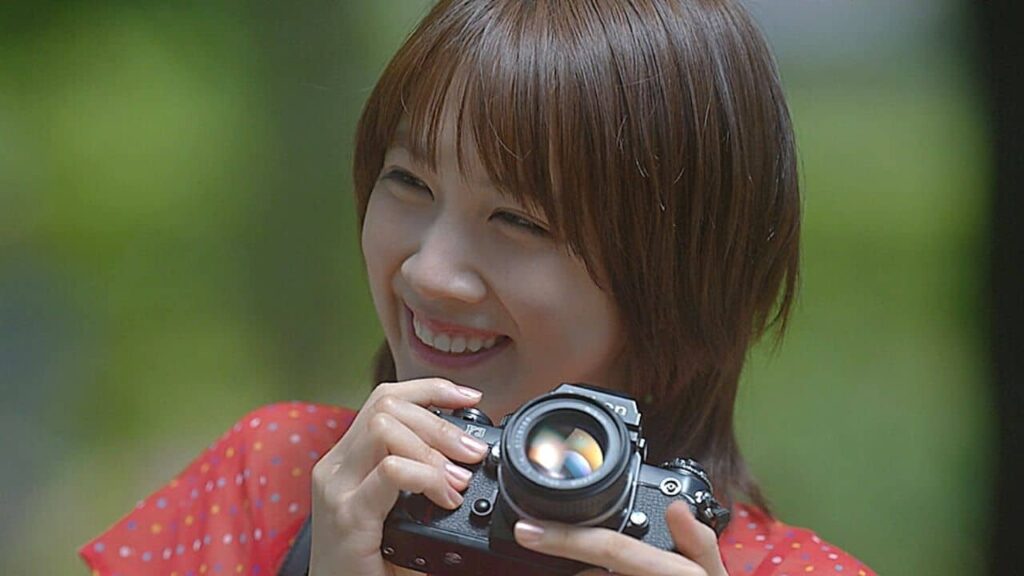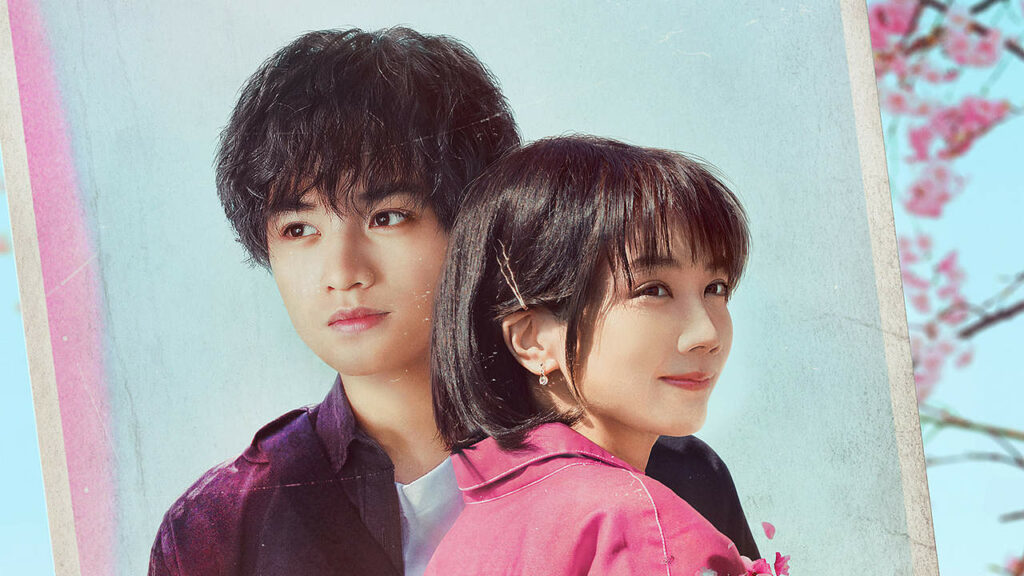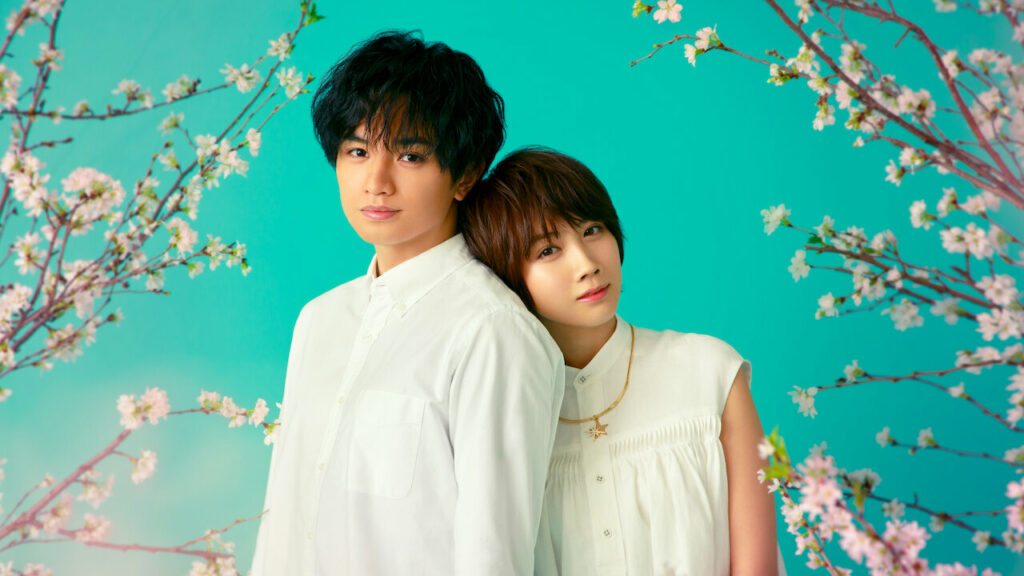Love Like the Falling Petals will emotionally destroy you
It’s been a while since I last explored and discussed J-dramas, which is truly a crime I cannot believe I have committed. For shame, me! I am feeling especially guilty at this point because my negligence had me almost completely missing out on checking out Love Like the Falling Petals.
Originally released on March 24, 2022 and quickly being made available on Netflix, there really was no excuse for me not giving it a go yet. So I’ve since corrected myself on this, reassured by its positive reception from MyDramaList users. Indeed, it’s listed on the site as the highest-rated J-drama of 2022 at the time of writing, sitting at a score of 7.8 out of 10.
So it gives me the greatest of pleasure to confirm that those who have been applauding the movie so vocally are completely in the right. If you felt even the slightest bit moved by the anime movie A Silent Voice or shows such as Your Lie in April, you will need to watch Love Like the Falling Petals. Let’s take a closer look in a spoiler-free review.
The great tonal shift

If this movie is new to you, skip reading what I have to say and just go watch it, seriously. I sat down and viewed it completely blind, so I didn’t even know a synopsis. I found that this really helped the experience: I felt all the emotions that were clearly intended, and it struck my core with aggressive, unrelenting force thanks to the whiplash of its plotline. Please, just go watch it — but if you need to know the finer details, read on.
Love Like the Falling Petals is an adaptation of the 2017 novel My Lover, Like Cherry Blossoms, written by Uyama Keisuke — someone I will most certainly be looking more into after having seen this. The movie is just over two hours long, and you’ll be severely surprised by what happens in its second half. What initially starts out as an incredibly endearing romantic comedy will leave you wallowing in utter despair and absolute grief.
Love Like the Falling Petals provides some hints with its own title — if the focal “love” of the movie is described as “falling petals”, that can only mean one thing: how fleeting it can be. It starts off harmlessly enough, setting up plenty of emotional moments that you won’t bat an eye at initially.
Haruto Asakura is infatuated with hairdresser Misaki Ariake, and he goes there once a month to have his hair cut by her, without fail. He initially takes an interest in her favourite movies that she reveals in conversation with him, and he makes a note of them so he can watch them himself over and over again. This turns into a drive and desire to develop a more substantial connection with her.
Events begin to transpire between them, and when Misaki accidentally chops a bit of Haruto’s ear off — an incident that understandably leaves both of them in a state of shock — Haruto takes this as a prime opportunity to ask her out. (As you do – Ed.)
Misaki initially appears to agree to go out with Haruto out of the goodness of her heart as a means of apologising for the incident, while Haruto is keen to finally close the distance between them. A story of romance blossoming begins as the pair begin to see the true value of one another, and figure out how to build one another up to be the very best they can be.
Heart-wrenching and heartfelt

While that certainly isn’t everything that transpires in the plot, a significant chunk of Love Like the Falling Petals’ messages come across through how Haruto and Misaki encourage and push one another to focus on themselves for their own betterment. They both work hard and demonstrate tireless commitment to one another, no matter the time or distance between them.
Haruto had previously given up pursuing his passion of becoming a photographer due to struggling with how competitive and harsh the professional environment was, while Misaki is in the midst of pursuing her ambition as a novice hairstylist, intent on opening up her own salon in the future. Both characters find their situations and circumstances changing due to their involvement with one another once the sparks start to fly.
Prior to that, we see the pair of them bond quickly but believably across multiple dates, gift exchanges and the always-endearing “falling asleep together” scenario, hand-in-hand on a bus trip that is later hauntingly yet touchingly juxtaposed with another later scene. Haruto getting visible and unashamedly ecstatic as the simple receipt of a text message from Misaki is also unforgettable.
It goes without saying that the driving force behind the movie is the idea of inspiring others to pursue their dreams, since the narrative depends on these two reconnecting and promising to meet again once they fulfil their promises and ambitions. But like all the greatest movies out there, that’s just one factor to its many emotional beats.
The waterworks didn’t stop

Like any beautiful creation that leaves us with a life lesson, Love Like the Falling Petals manages to do everything it sets out to do. It functions effectively as a great comedy with some real laugh-out-loud moments, particularly relating to some antic-filled scenes involving Misaki’s older brother Takashi.
Takashi is extremely protective of Misaki, you see, and he often tries to keep Misaki safe from any amount of male attention that may spell trouble in his eyes. In one scene, the camera changes to Haruto’s point of view to conceal a particularly humorous setup.
All the actors do an incredible job hitting the right notes, be it comedic or emotional. Kento Nagayama’s performance as Takashi is particularly noteworthy, with his emotional heart-to-heart with Misaki during the midpoint of the movie speaking volumes to his character. A once hardened, stoic brother pouring out his heart and insecurities really shows how much he cares about his younger sister, and how much he wants to avoid disappointing her. It was one of the earliest scenes to break me, and from thereon there was no going back.
There is gutpunch after gutpunch to be had with Love Live the Falling Petals. It starts off innocently enough, with lines about how their aspirations are “like magic”. It’s inspiring for the way they view their ambitions and discuss them with one another, because it ultimately builds them up and has them both seeing further value in the things they put their heart and soul into. But what’s more striking is how magical their commitment to one another is; it’s one of the purest romantic relationships I have ever seen.
The same can be said for how masterfully developed and presented their relationship is. It’s a truly captivating and charmingly believable depiction of unconditional love while still being tragically realistic due to circumstances that the characters inflict upon themselves. They do what they do for each other, no matter how much it hurts themselves. You’ll know what I mean in the last ten minutes.
The movie is extremely poignant as a tale about making the most of the time that we have when we are alive — and especially the importance of spending as much time as possible with the ones we love. Now that I think about it, it feels like a modernised Beautiful Life, one of the greatest J-drama TV shows to have ever existed. So if you enjoy this movie — or if the things we’ve talked about here strike a chord with you — then Beautiful Life is also something you should add to your watch list.
Love Like the Falling Petals can be watched on Netflix and is, for me, one of the best movies currently available on the platform. You can thank me later for the good cry you’ll have from it. It’s so cathartic.
Join The Discussion
Rice Digital Discord
Rice Digital Twitter
Rice Digital Facebook
Or write us a letter for the Rice Digital Friday Letters Page by clicking here!
Disclosure: Some links in this article may be affiliate links, which means we may earn a small commission if you make a purchase after clicking on them. This is at no additional cost to you and helps support Rice Digital!
- Sigh of the Abyss: Shadow Bonds – Prologue Review - October 7, 2023
- Is She The Wolf? is wickedly addicting TV - October 6, 2023
- The steady consumption of Slow Damage - October 5, 2023






